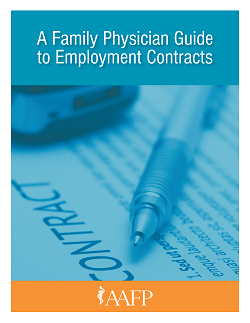Physician Employment Contracting
Understanding the terms of your contract and knowing how to negotiate to protect your interests are central to ensuring your career success and well-being as an employed physician.
A physician employment contract defines conditions of your employment. Read your contract carefully because it can greatly impact your professional satisfaction, as well as your personal happiness.
Improve Your Contract
How to Choose a Lawyer for Contract Review
Get questions to ask an attorney before you hire one to review your contract.
How to Review Your Contract
Use a checklist to determine whether your contract is missing something important.
How to Negotiate a Contract
Learn the most important changes to ask for and how to successfully negotiate.

How do I spot red flags in an employment contract?
Tough-to-negotiate items and red flags are common in contracts. Catch them all with the help of a contract review checklist.
Noncompete Rules in Physician Contracts
Although common in employment contracts, restrictive noncompete agreements limit patient access to care, hinder physicians’ career choices and contribute to physician burnout. Several states have moved to adopt their own bans on noncompetes. The AAFP supports chapter efforts to help secure these wins in the states and advocates at the federal level for elimination of noncompetes.
Employment Contracting Resources From FPM
Explore the top contracting articles and more from FPM, the AAFP's peer-reviewed journal focused on all things practice and career.

